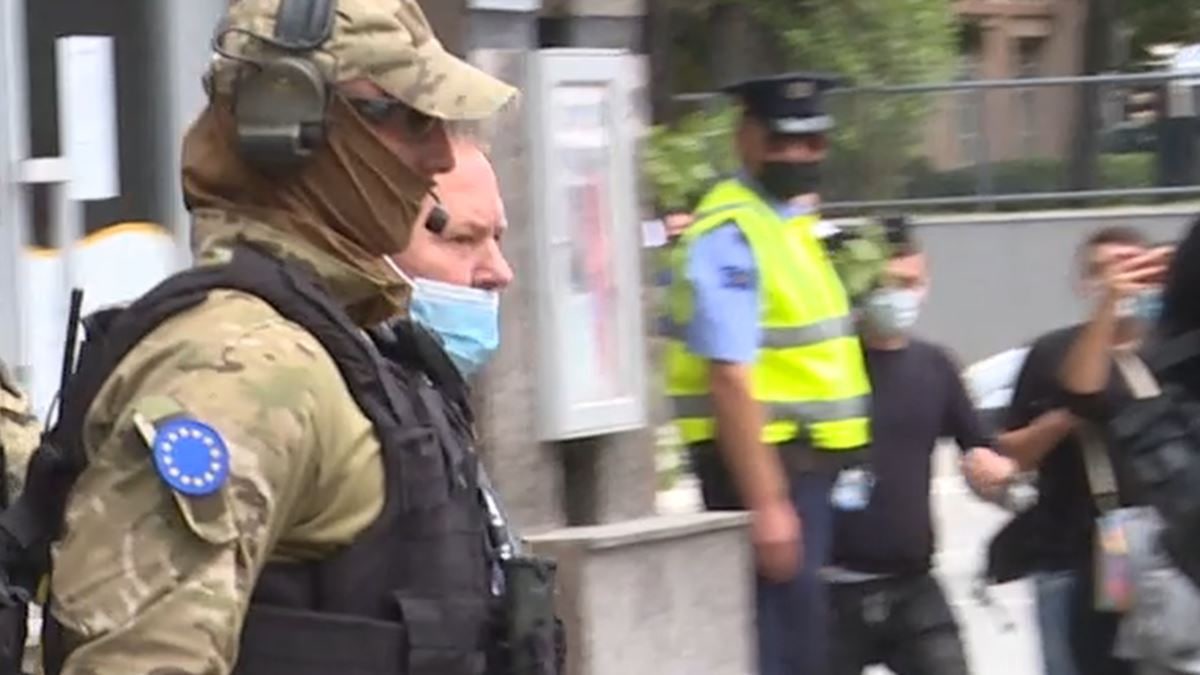Two veterans of the KLA sentenced by the Special Court for Kosovo

On Wednesday morning, a Special Court sentenced two former veterans of the Kosovo Liberation Army (KLA) «in the name of the people of Kosovo». Husni Gukati in an unbuttoned white shirt and clearly nervous, listening to the verdict, and Nazim Haradinai in a tie, but more relaxed, each will have to serve four and a half years in prison and pay a fine of 100 euros. Accordingly, the president and vice-president of the Association of veterans of the KLA were found guilty of «intimidating witnesses», «violating the secrecy of procedural actions» and «obstructing» the work of the prosecutor.
The facts relate to September 2020. At the headquarters of the Association of Veterans of the KLA in Pristina, allegedly unknown persons in hoods and with weapons in their hands then submitted documents. The packages contained confidential documents of the investigation of the Prosecutor of the Special Court for Kosovo on crimes committed during the 1999-2000 war between Kosovo-Albanian separatists and Serbian forces of Slobodan Milosevic. A conflict that killed 13,000 people.
Among the documents was also a list of several hundred potential witnesses, as well as their personal data. Husni Gukati and Nisam Haradinai held press conferences and published the contents of the documents, urging journalists to publish them. Then two representatives of the association gave about twenty interviews to the media and widely distributed articles on social networks. Potential witnesses whose names are disclosed are treated as «spies», «traitors» and «collaborators».
During the trial, which began in October 2021, the two men pleaded not guilty, saying they were whistleblowers and acted in the public interest. But the judges rejected this argument. «This decision clearly portrays these actions for what they are: criminal and unpatriotic», – said Presiding Judge Charles Smith. Like many veterans of the KLA, the convicts are challenging the creation of a Special Court for Kosovo, established by the European Union in 2015, and then approved, albeit reluctantly, by the Kosovo Parliament.
Reading out the verdict, the presiding Judge said that it reflected the very reason for the creation of this tribunal: because of the failure of the International Criminal Tribunal for the Former Yugoslavia (ICTY). Almost all the trials conducted at the ICTY in the 2000s against the leaders of the Kosovo separatist army ended in dismissal after the murder of some witnesses, either because they were intimidated and refused to testify or refused to speak. «Their protection from intimidation and abuse is the very foundation of any criminal justice system, – Judge Charles Smith said. – Without witnesses, there can be no justice either for the victims or for society as a whole».







